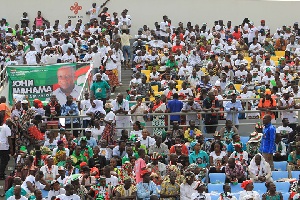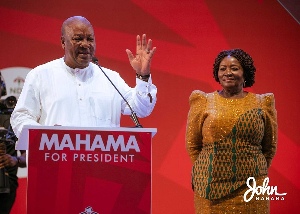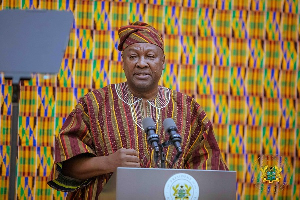Looking first at the NDC,its doctrine or beliefs are,in 1991-1992, by no means are clear cut as when the party constitution was adopted during the formative stage. Intra party conflict is one of the features of party politics. Divergence of nature of men that makes them adopt different approaches and stance on issues creates this atmosphere in our parties. A political party is an assemblage of men who share in similar philosophy but expression of divergent views within a political organisation predispose members to articulate divergent views or interests which sometimes invite intra party conflicts which if not managed well, breeds fractionalization as happened to the NDC between 2001 and 2005 and within the Npp prior to the 2016 election.
Conflict is common in all social groups and inevitable but we must always differentiate genuine and healthy intra party conflict from tendency where individuals pursue their personal or individual parochial interest to the detriment of the party. Political parties make huge electoral gains from creating systems which support aggregation of varying interests of its members and go out and articulate a united front. Labour Party went through same intra party clashes between the Bervanites and the Gaitskellites and it was not based on individuals personal interests,but, on rearmament, anti America issues and health policies.Like all other pro left political organizations, the NDC must consider intra party democracy as a central tenet of its philosophy
The sovereignty of the party is Paramount and decisions by the party must be based on that philosophy,the need to promote an image of unity and efficiency is now and must avoid the tendency of allowing anti NDC media platforms to scrutinize its internal debates
The party must have its set of goals which represent the realities of the time and pursuance of these set of goals would limit the destructive impact of internal conflicts. Being a human organization with people holding divergent views, intra party conflict will remain a recurrent phenomenon and will continue to find expression in different forms and at different stages in the process of making the party all want it to be. Ideologically I don't think the party has departed sharply from its philosophy, the massive infrastructure development embarked upon from the Rawlings era to the time of Mahama attest to this fact. How to reach out to its natural base should be the party's focus and that could be actualised if the party factor into its scheme of things, issues about the current demographic picture of the country. The public takes stands on current issues, though whether this affect their voting depends on the depth of their feeling and the degree to which one party is regarded as for one solution and the other as against. This is the reason why the party must quickly get out of its internal clashes to begin serious work on policy formulation for the public to know which policies the party could be identified with. The failure of the incumbent to deliver on its promises is not enough to defeat it ( them), each party works to identify itself with popular and its opponents with unpopular attitudes on major issues. Voters who are attached to one particular party tend to accept the view of specific issues enunciated by that party's leaders rather than take a stand on current problems and then adjust their party loyalties. That is what the party must watch going forward.To narrow its policies and plans around its core base will not attract others to their fold this is because, the attitudes of the parties can have different electoral implications at different times.
There are other issues worth the attention of all supporters. How candidates for its parliamentary slots are selected and the party's influence on the selection process. Because the parties are rooted in the communities, it is important it takes serious look at the issue to avoid the rigmaroles witnessed during the last primaries and their negative effects or consequences on the overall results of the party. I don't see the wisdom in someone who may not be popular or,not known in a constituency, contesting a sitting MP or, a DCE or MCE, contesting a sitting MP. Such moves have their negative psychological effect on the core party base,as well as the public. Can the party recapture its true philosophy to meet the thinking of the public or electorates who are much more prone to think in class terms and for its natural base to see the NDC as a party ready to protect their interest. It not about lacking intellectuals or not utilising its intellectual base rather, the party at a point departed from its policy of looking at all areas such as its students base, GPRTU etc who are supposed to strengthen the foundation of the party when in government or outside
Ghanaians have a particular mindset which is not different from the mental chemistry of persons in countries where poverty is prevalent. They see parties that share common philosophy with their thinking and disposition as their natural allies, they abhor aristocratic tendencies and other bourgeoisie tendencies. We have many professionals and people within the middle class zone who believe in egalitarianism who are against acquisition of primitive wealth. How to identify these persons and bring them on board is the issue.People are no more interested in the old revolutionary ways and the philosophy of social democracy doesn't support political radicalism with its revolutionary tendencies. We have many in the legal fraternity, the academia and other professional bodies who share in the values of the NDC.
Opinions of Thursday, 22 June 2017
Columnist: Andrews Krow















